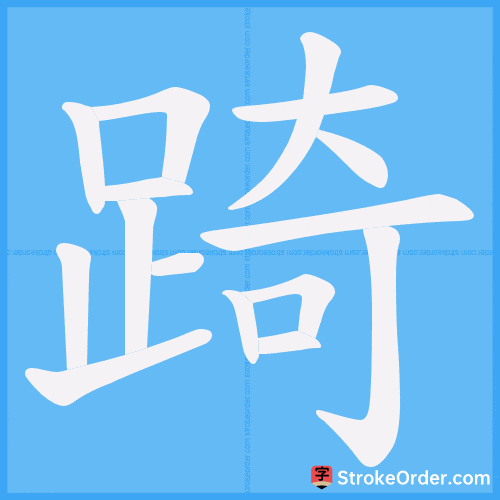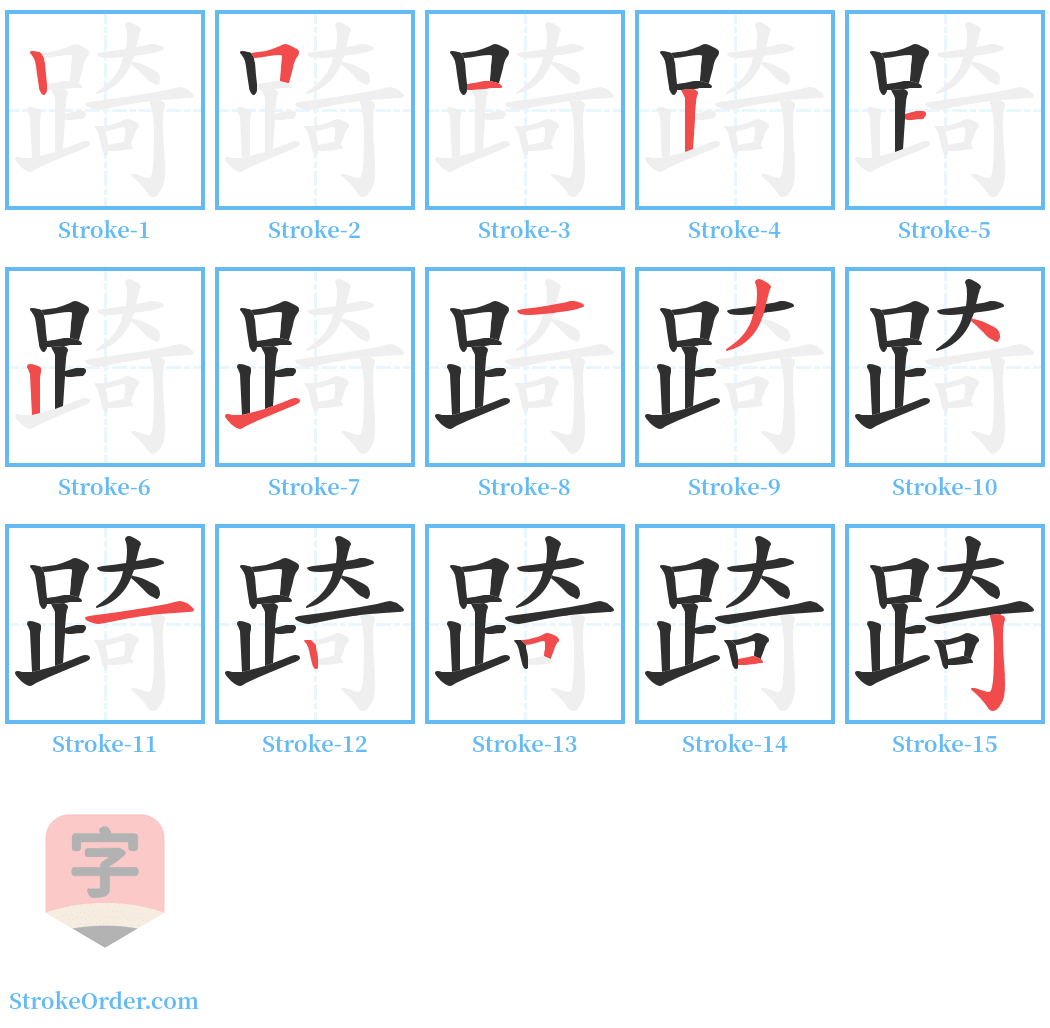踦 Stroke Order
Animated Stroke Order of 踦

Stroke Order Diagrams for 踦

Information of 踦
Pinyin
qī
Radical
足
Strokes
15 strokes
Usage
★★
Definition
踦 [qī]
1. 脚 (A foot).
- Example: 其狱一~腓一~屦而当死 (In his case, one foot would be assessed to be facing death).
2. 跛 (Lame).
- Example: 其跳者~也 (The jumping one is lame).
踦 [qī]
1. 同本义 (The same meaning as the original term) ([En.] a foot).
- Example: 踦校 (one foot; incomplete).
2. 脚跛,行走不便 (Lame, walking inconvenient). 亦指跛足的人 ([En.] lame).
- Example:
- 踦跂 (the appearance of walking inconveniently);
- 踦犊 (a calf unsteady on its feet);
- 踦牂 (a lame mother sheep).
3. 偏重 (Lay particular stress on) ([En.] lay particular stress on; one-sidedly emphasize).
- Example:
- 踦重 (to emphasize);
- 踦颇 (biased; one-sided);
- 踦跛 (when standing on two feet, the weight is tilted to one side).
(用膝盖)顶住 (Use the knee to prop against).
踦 [yǐ]
1. 用膝顶住 (Prop knee against) ([En.] prop knee against).
2. 倚立 (Stand against something) ([En.] stand against something).
- Example:
- 踦户 (lean against the door);
- 踦闾 (leaning against the door, closely adjacent to it).
*引自繁体辞典解释 (cited from traditional dictionary explanations)
腿、脚胫 (Legs, shins) ([En.] legs, shins).
- Tang Dynasty, Yuan Zhen's poem on spiders: 巴蜘蛛,大而毒。其甚者,身边数寸,而踦长数倍其身 (The big and poisonous spider, the most extreme ones a few inches in diameter, and the legs are several times longer than its body).
倾斜不平 (Uneven or inclined) ([En.] uneven).
- Example: 《文选·左思·魏都赋》:「山阜猥积而踦 (Mountains accumulate unevenly)」.通「崎」 (literally ‘to be steep’).